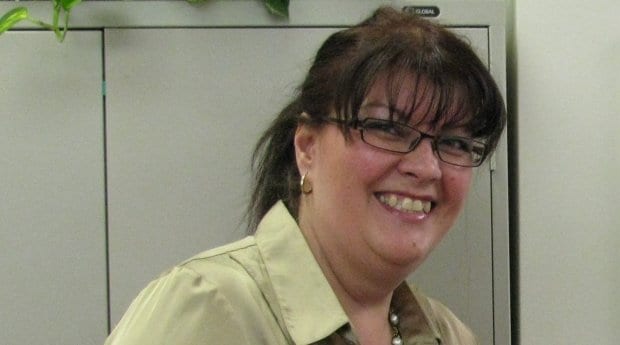The stigma around HIV/AIDS is a huge obstacle for people living with the virus, and it contributes to many people choosing not to get tested, according to the head of the Canadian AIDS Society (CAS).
“I think there’s still a lot of misinformation out there,” says Monique Doolittle-Romas, CEO at CAS. “I think, sadly, there is some judgment that goes with HIV because essentially in Canada you’re going to contract the virus one of two ways — having sex or using drugs — so I think there is some moral judgment that still goes with that, unfortunately, so we still have some work to do.”
Seeing the stigma and discrimination HIV-positive people face contributes to some people deciding not to get tested, she says. “I think there is definitely some fear. I think there are people who don’t know that they’re positive, not just in the gay community, but in all of our communities. They don’t think that they’ve put themselves at risk. I think there are people who don’t want to know, and I think it is important that you do know your status so you can get on to treatment.”
On Dec 1, the Canadian AIDS Society marks World AIDS Day with its annual gala, taking place at the Ottawa Marriott Hotel. Rona Ambrose, the federal minister of health, will be speaking. Ahmed Habre, who will talk about his experience with HIV as a youth, will give the keynote address.
In Canada, approximately 3,000 people are becoming infected with HIV each year, Doolittle-Romas says. “It’s important to talk about stigma and discrimination, and it’s time for Canadians and people worldwide to remember those who are still living with HIV or at risk of HIV and for us to remember those we’ve lost to AIDS,” she says.
Small actions are meaningful for reducing stigma, she says. Wearing a red ribbon, attending a vigil and being willing to talk openly about HIV/AIDS are all important steps.
HIV criminalization, which appears to be on the rise in Canada, is another source of stigma and fear, she says. “My message is that it’s every Canadian’s responsibility to focus on prevention; not just HIV-positive people, but every Canadian’s responsibility.”
To lower your risk of HIV, Doolittle-Romas recommends using condoms, never sharing drug paraphernalia and talking to your doctor about pre-exposure prophylaxis (PrEP). The Canadian AIDS Society’s website also recommends getting tested for HIV and sexually transmitted infections regularly, encouraging your partners to do the same and getting a prescription of post-exposure prophylaxis (PEP) within three days if you suspect you’ve been exposed to HIV.
Doolittle-Romas says her hope for World AIDS Day is that people living with HIV are able to access the support they need. She says many organizations are doing good work, from Bruce House to the AIDS Committee of Ottawa to the Wabano Centre for Aboriginal Health and Sandy Hill Community Centre’s Oasis Program.
While the gala is a great opportunity to come together to show support for people living with HIV/AIDS, Doolittle-Romas says she hopes one day the gala will be about celebrating a world without AIDS.
World AIDS Day Gala
Mon, Dec 1, 6 pm
Ottawa Marriott Hotel
100 Kent St
events.r20.constantcontact.com/register/eventReg?oeidk=a07e9wf0aqvdd3c886a&oseq=&c=&ch=


 Why you can trust Xtra
Why you can trust Xtra


